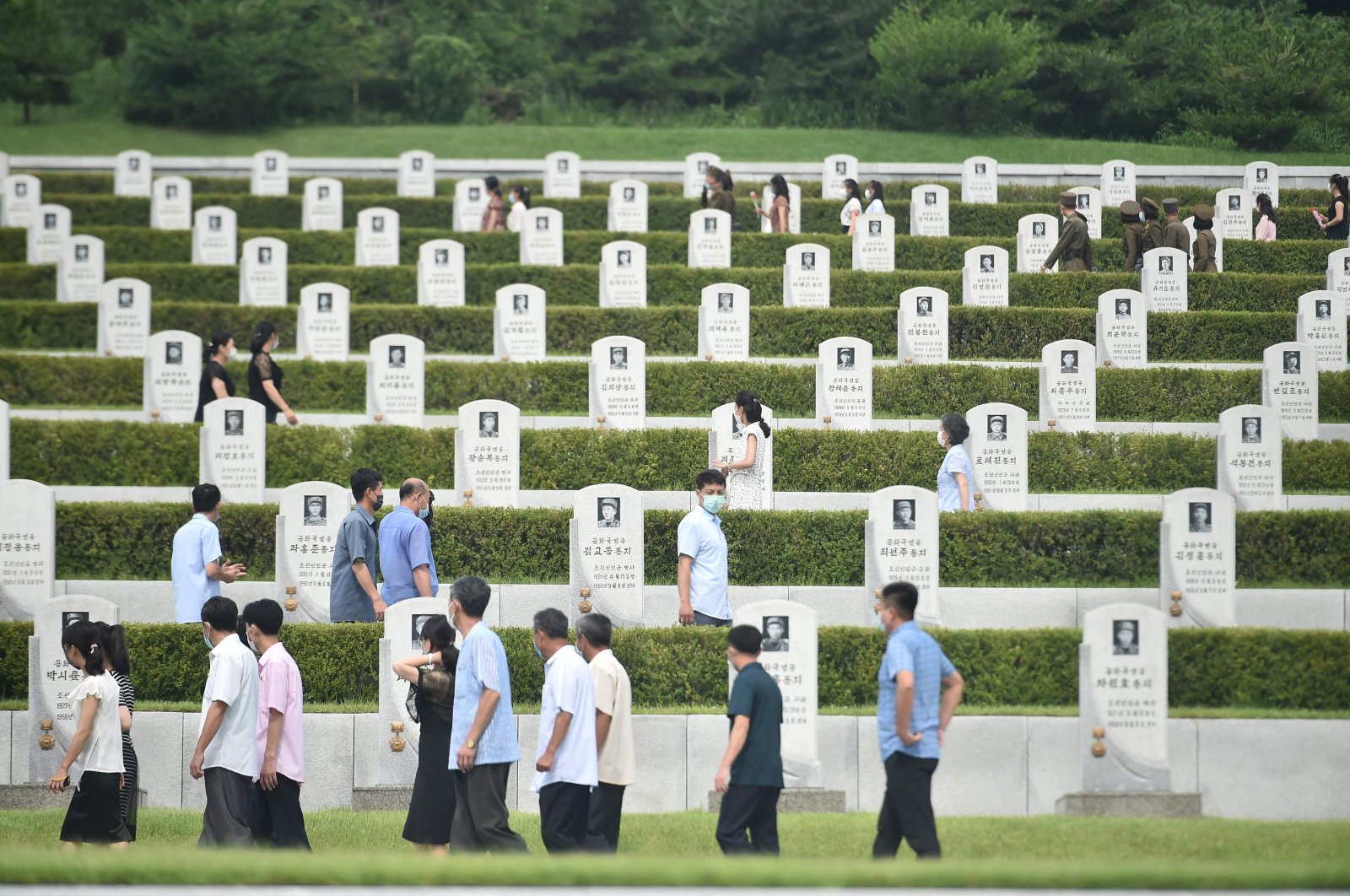
Turkey's decision to send its troops to Korea represented a strategic diplomatic choice to join the Western bloc and this decision has greatly contributed to the strengthening of the state structure, Turkey's Ambassador to Seoul Ersin Erçin said Tuesday.
It has been 69 years since the Korean War ended on the field, though it technically continues since a peace agreement to formally end the war was never signed.
Erçin told Anadolu Agency (AA) that Turkey showed great diplomatic dexterity to avoid participating in World War II.
"Resolution 83, adopted by the U.N. Security Council on June 27, 1950, inviting member states to join the war to help South Korea, came to the fore at such a critical time for Turkey. The government of the period responded positively to the call of the Security Council and decided to send a brigade to Korea. The decision to send troops abroad for the first time in the history of the Republic paved the way for our membership in NATO in 1952," the ambassador explained.
Stating that Turkey made the choice to join the Western alliance with its decision to send troops to Korea, Erçin said that this decision made a great contribution to strengthening the state structure.
Erçin highlighted that Turkey went beyond providing just military support to the peninsula. "Unlike the other 20 countries that participated in the war under the U.N. command, Turkish military units not only showed great heroism in Korea, but also provided humanitarian aid to Korean civilians without instruction," he said, noting the medical services offered to the sick and injured as well as the food, clothing and educational support provided to orphans. "It puts our country in a different position in the eyes of the Korean people than other countries participating in the war."
Stating that the cease-fire agreement signed on July 27, 1953 was not signed by South Korea, Ambassador Erçin added: "Although it was accepted in the U.N. General Assembly on Aug. 28, 1953, the fact that South Korea, which did not sign this agreement, is technically still in a state of war with the North, further stretches the atmosphere of the Cold War that has been going on for 70 years on the Korean Peninsula. As a matter of fact, one of the most important issues discussed in the third peace attempt between North Korea, the United States and South Korea, which started with great hopes on Jan. 1, 2018, continued for two years with three summits and many technical meetings, and ended in failure, was the signing of a declaration that would legally end the war. The proposal to sign a declaration to end the state of technical warfare went off the agenda with the inauguration of the (South Korean President) Yoon Suk-yeol administration on May 10, 2022 in Korea."
He stressed that North Korea is using its nuclear and ballistic missile program as a powerful lever to sit as an equal partner in peace negotiations with the United States. He said that the Cold War atmosphere triggered by the trade wars between the United States and China in Asia-Pacific was further aggravated by North Korea's missile tests.
"Turkey stands with South Korea and the Western alliance against the nuclear and ballistic missile threat from North Korea. Unfortunately, it seems that the multi-element tensions in the region will not decrease in the foreseeable future," he added.
The Korean War, which started with North Korea's invasion of South Korea on June 25, 1950 and ended on July 27, 1953, technically continued as a peace treaty could not be signed despite many peace attempts, with all attempts to reach a peace agreement so far unsuccessful.
North Korea was supported by China and the Soviet Union while the United Nations under the leadership of the United States supported South Korea throughout the war. The first Turkish brigade set out on Sept. 17, 1950.
According to the South Korean Ministry of Defense, Turkey, which participated in the war with a total of four brigades with 21,212 soldiers, ranked fourth among the 16 countries participating in the Korean War in terms of the number of soldiers.
The United States was the country that sent the most soldiers to the Korean War with 1.78 million soldiers. Britain took second place with 56,000 soldiers and Canada took third place with 26,791 soldiers.
In the war, 178,569 soldiers in South Korea, including 40,670 U.N. forces and 137,899 Korean soldiers, lost their lives in addition to 508,797 soldiers in North Korea.
Having lost 36,940 soldiers in the Korean War, the U.S. became "the country with the most casualties." While the United Kingdom followed with 1,078 casualties, Turkey took third place with more than 900 casualties from the war, including more than 700 soldiers who lost their lives at the front line and those who disappeared after being wounded.
In the war, about 5,000 people were taken prisoner by South Korea and the U.N., and about 70,000 people from North Korea and China. During the prisoner exchange in June 1953, one month before the cease-fire agreement, all 244 prisoners from the Turkish brigade returned.
At the U.N. Korea Memorial Cemetery in Busan, there are 462 Turkish soldiers who were killed in the war.
Among the troops participating in the Korean War, the Turkish military was the only unit that built schools for Korean children who were orphaned in the war.
No comments:
Post a Comment